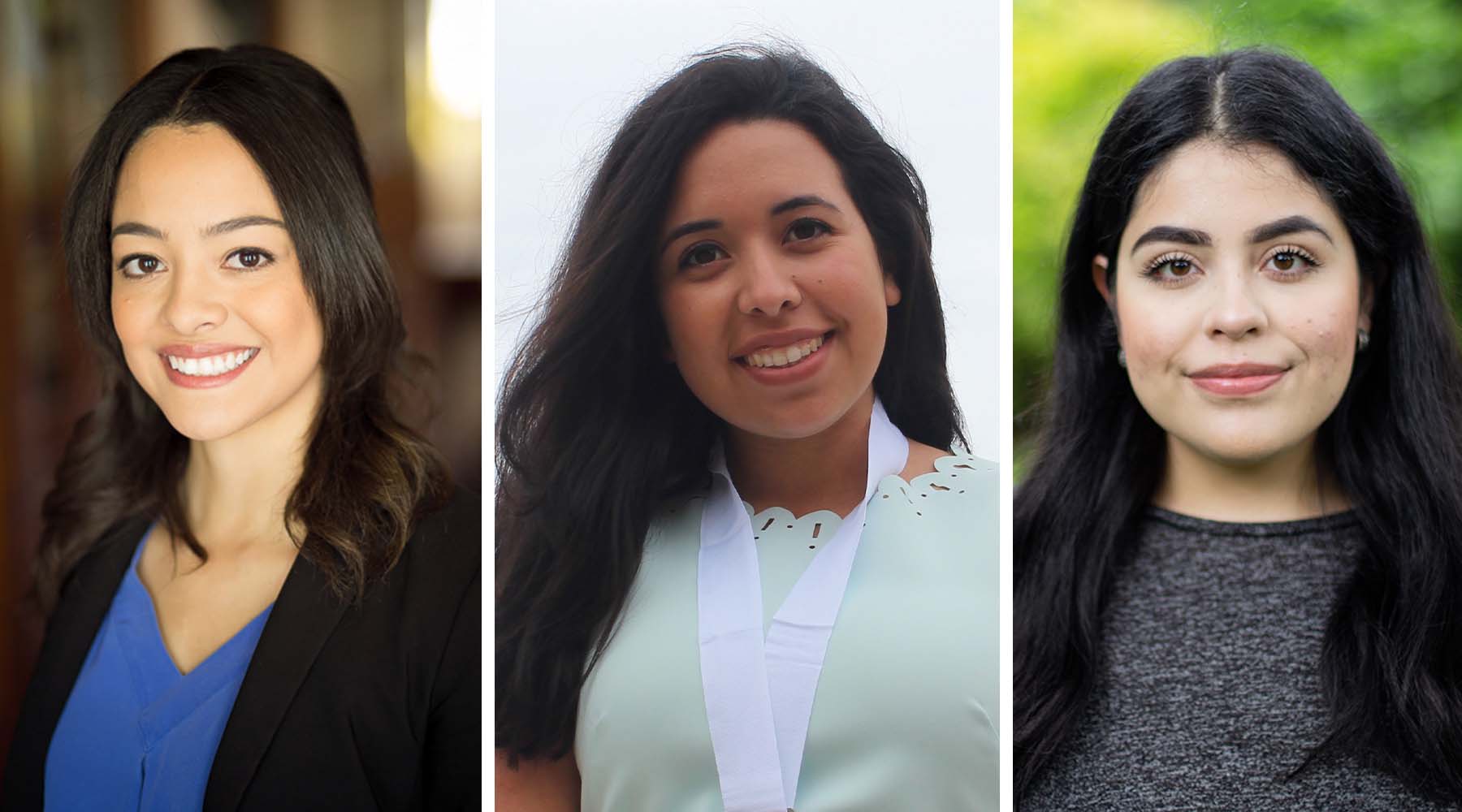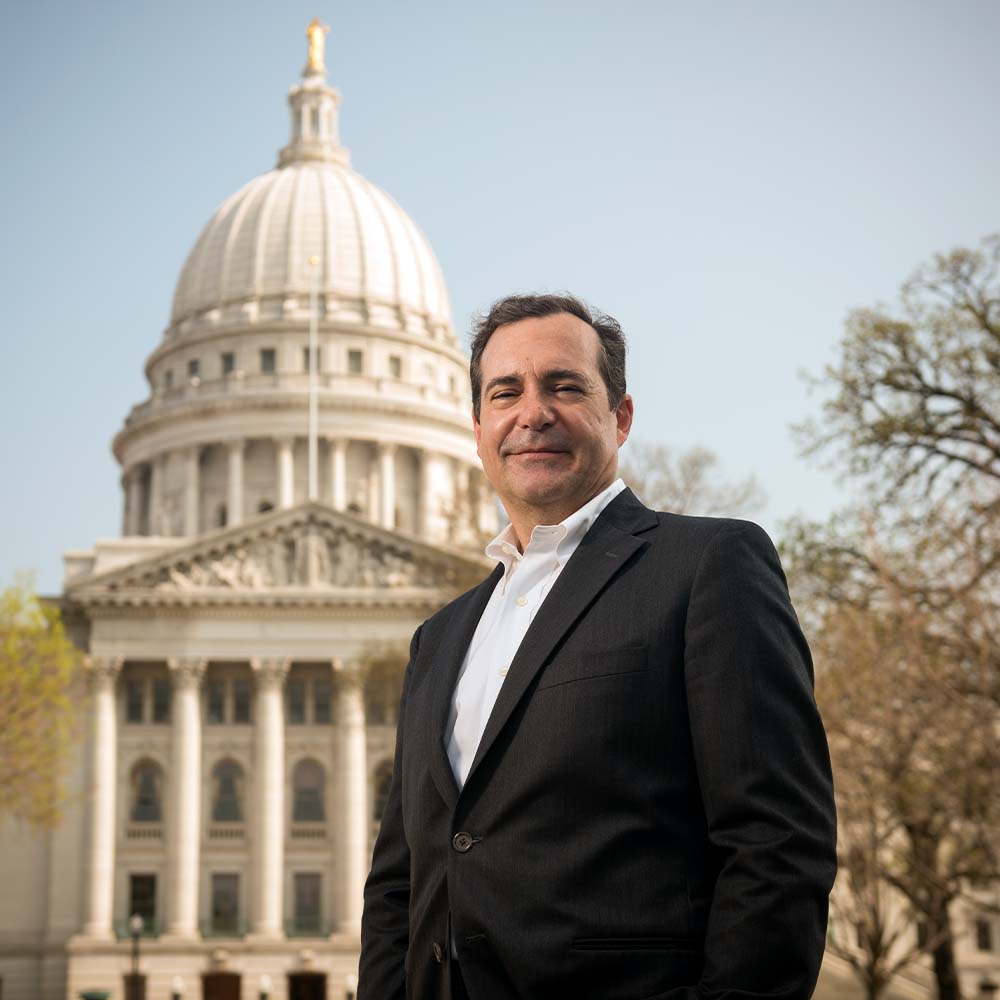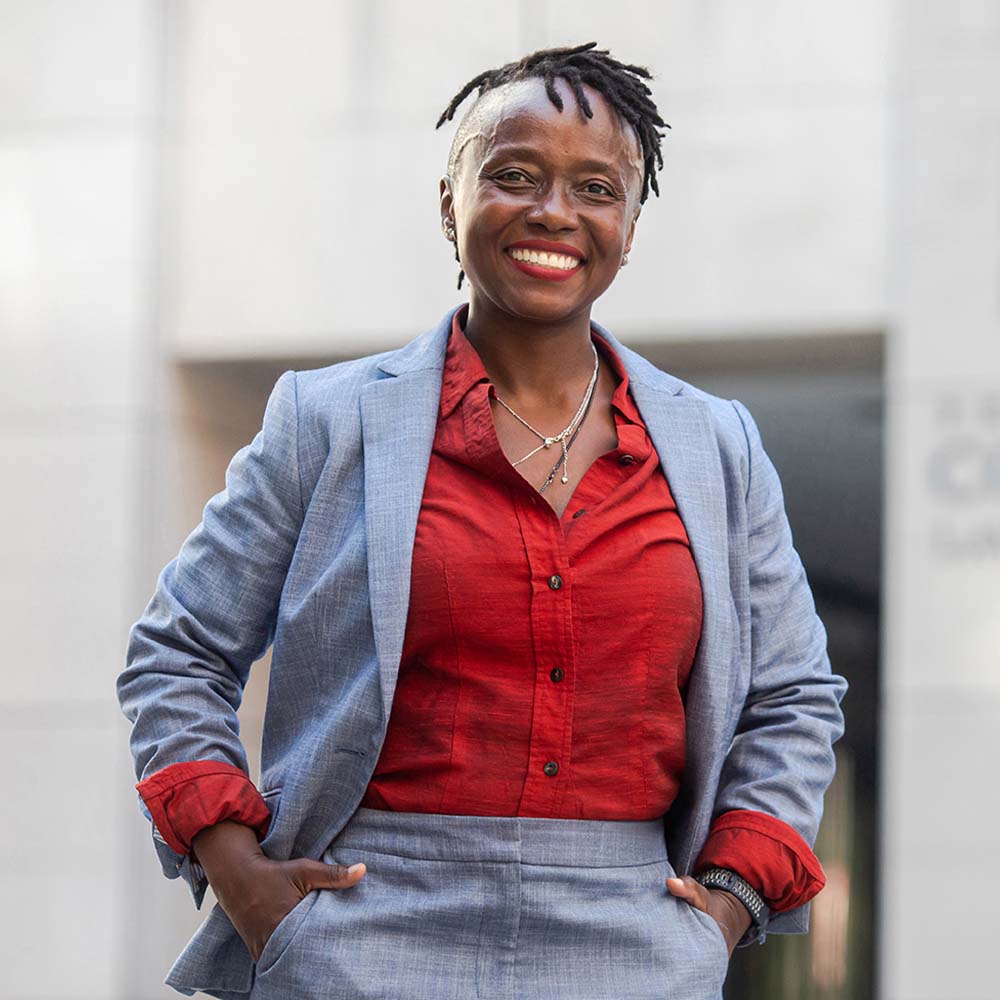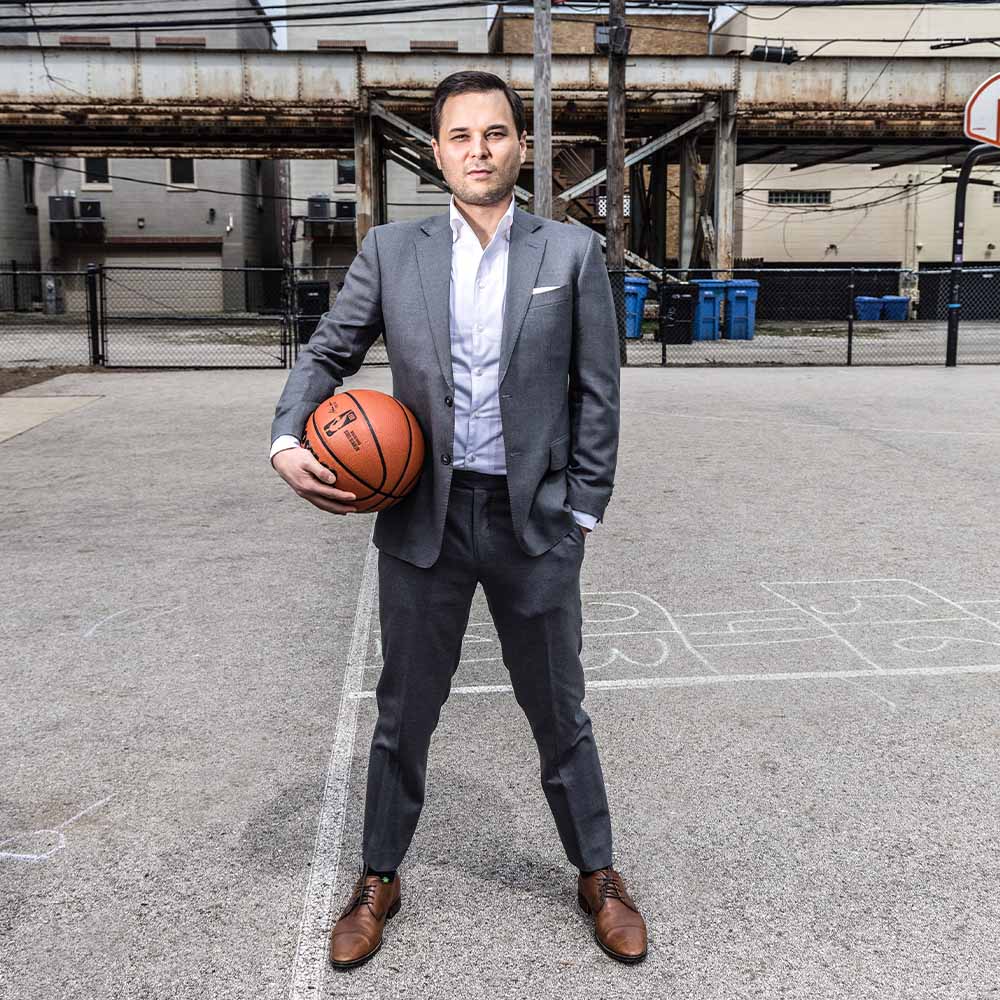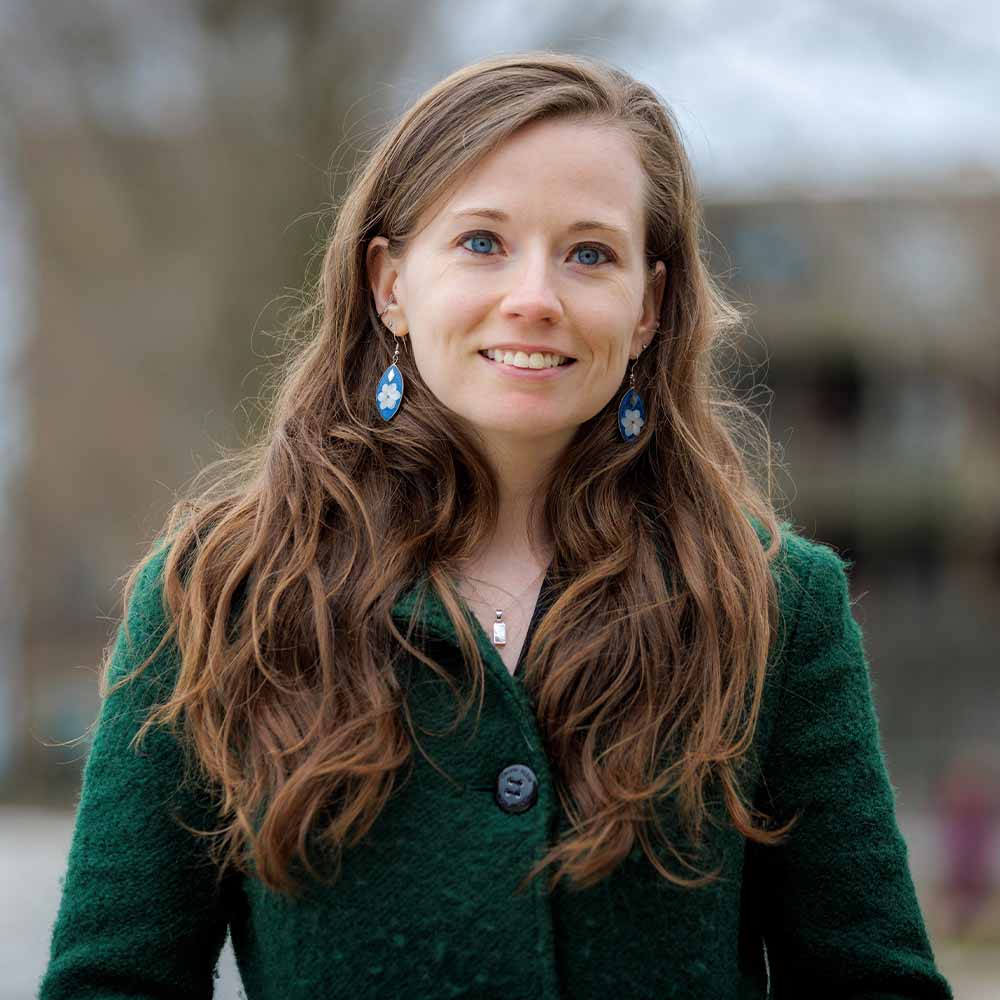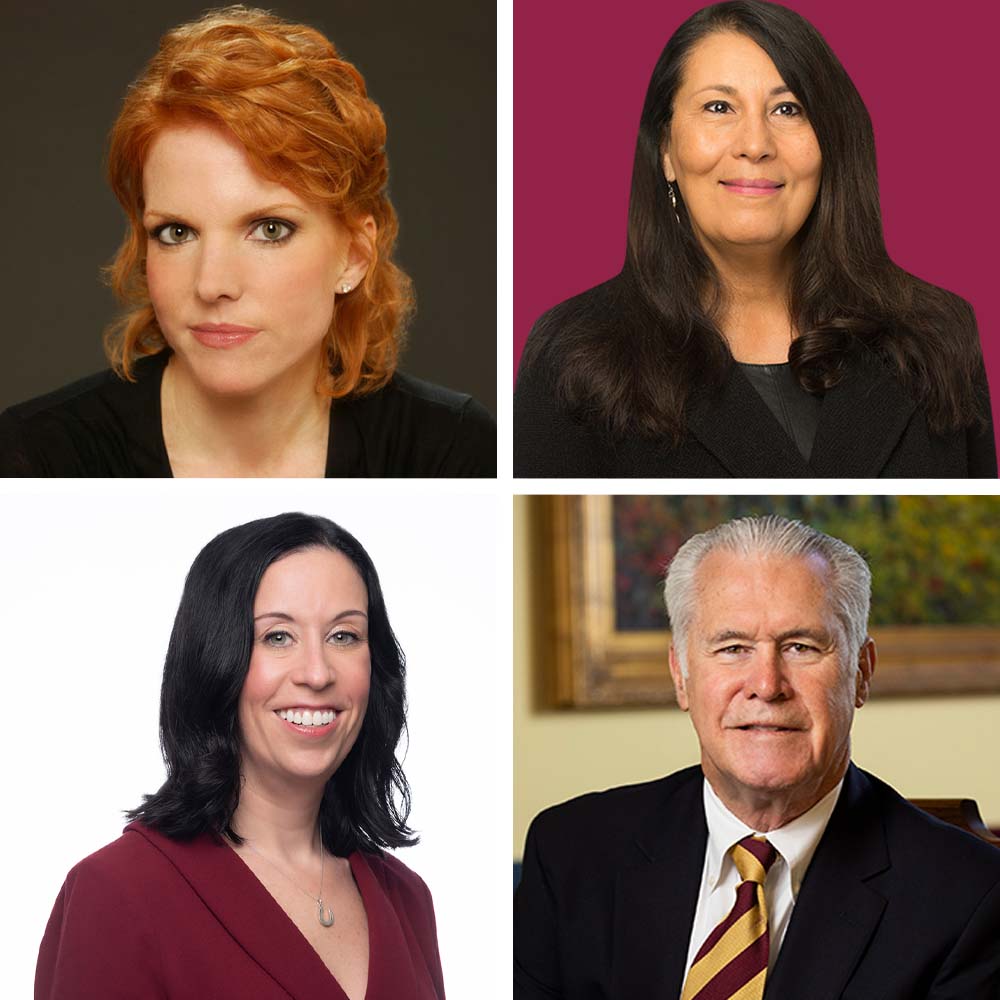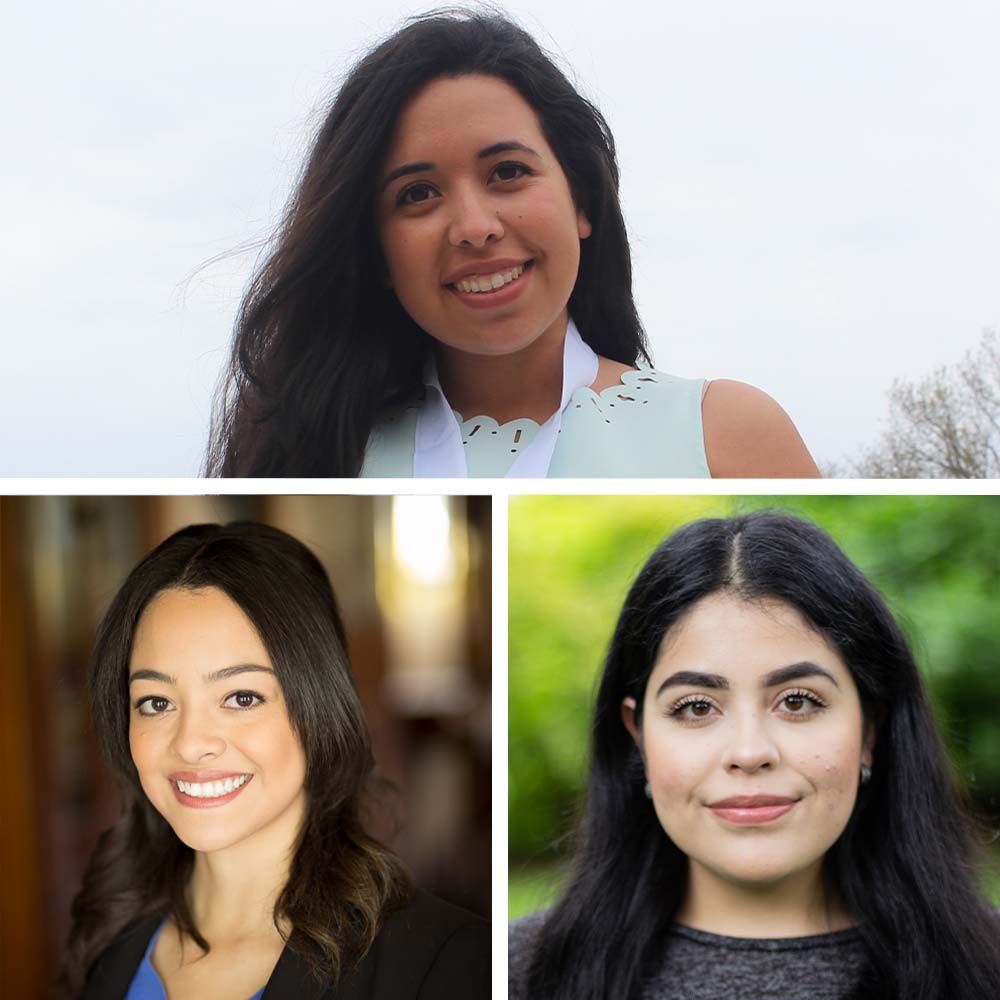Guiding stars
As Castillo Scholars, Loyola students mentor underrepresented applicants to law school
In her first semester at Loyola Law School, Katia Cortes did what all her fellow first-years did: registered for torts class. She said to a classmate—one of the only other Latinas in her
section—“I don’t know what a tort is, but I’m here.”
That classmate was Maria Ortega Castro (BS ’19), an immigrant and first-generation college student, just like Cortes. The fact that both were “here,” enrolled in law school, was no small feat.
Many lawyers recall the complexity of applying to law school—the nerve-racking thoroughness required. Neither Cortes nor Ortega Castro had family who had been through graduate or professional school. Neither knew a single lawyer before starting the application process.
“I even had to Google how to get into community college,” says Ortega Castro. “I found one Latina lawyer [Nubia Willman (JD ’10)] on Instagram and basically stalked her—asked her all my questions. She really helped guide me, and now my mission is to do the same for those who come after me.”
Ortega Castro, Cortes, and Vanessa Aceves are doing just that as co-directors of the School of Law’s Castillo Scholars Mentorship Program.
Launched in 2020 by then-students Fernando Hernandez Paredes (JD ’21) and Elizabeth Flores (JD ’21), the Castillo Scholars program helps underrepresented students nationwide apply to law school—any law school, not only Loyola’s—by pairing them with current Loyola students as mentors.
Mentors advise mentees on every part of the process: studying for the LSAT, completing the application, writing personal statements, deliberating part versus full-time enrollment, choosing a school, finding financing, and exploring different areas of practice. When mentors don’t have an answer, they strive to connect mentees with someone who does.
“The ideal is for us to work with mentees who are a full year from applying, so we can give them all the information with plenty of time to prepare to apply the next fall,” says Aceves, adding, “But we’re here to help anybody at any stage of the process.”
Aceves’s backstory is unlike that of her co-directors. She was born and raised in Chicago, the daughter of a Loyola law alumnus. Her father, Luis Aceves (JD ’91), was able to advise her throughout the application process, but, she says, “I knew there were so many times that I would have had no idea what to do if it weren’t for my dad.”
Also, after Aceves arrived at law school, she felt discouraged that “people were always surprised to hear I was a second-generation law school student.”
Over the last two years, the Castillo Scholars program has served 124 mentees. It’s an impressive total given that the program relies almost exclusively on word of mouth to reach prospective mentees. The three co-directors and their fellow mentors reach out through Loyola alumni, faculty, and admissions staff, as well as through academic advisors and minority student groups at their own undergraduate universities.
“The law serves communities that are not well represented. We need to look like the people we’re serving.”
This program, conceived to help Latinx students, was named in honor of Ruben Castillo (BA ’76), the first Latino to be named a judge, and later chief judge, of the U.S. District Court for the Northern District of Illinois. Under the leadership of Aceves, Cortes, and Ortega Castro, the program is expanding to accommodate needs of students from backgrounds that are underrepresented in the legal field.
“Loyola is a very inclusive community, but the legal field is still failing in so many ways: with women, with people of color, with people with disabilities, people who are LGBTQ, all types of marginalized groups,” says Cortes. “The law serves communities that are not well represented. We need to look like the people we’re serving.”
The three co-directors have set a goal to recruit as their successors three students who represent minority groups other than Latinx.
But they have another year before they retire. All three will remain directors during their third year, even Ortega Castro, who will by then be the first Latina editor-in-chief of the Loyola Law Journal.
“I come from a family of immigrants,” says Cortes. “For so much of my life, ignorance of the law made me afraid of it. Applying to law school was awful because I didn’t know where to get help. No one was shunning me; I just didn’t know. So sharing my knowledge with others like me—even if it’s a lot of work and stressful at times—is so fulfilling.” –Liz Miller (Summer 2022)
